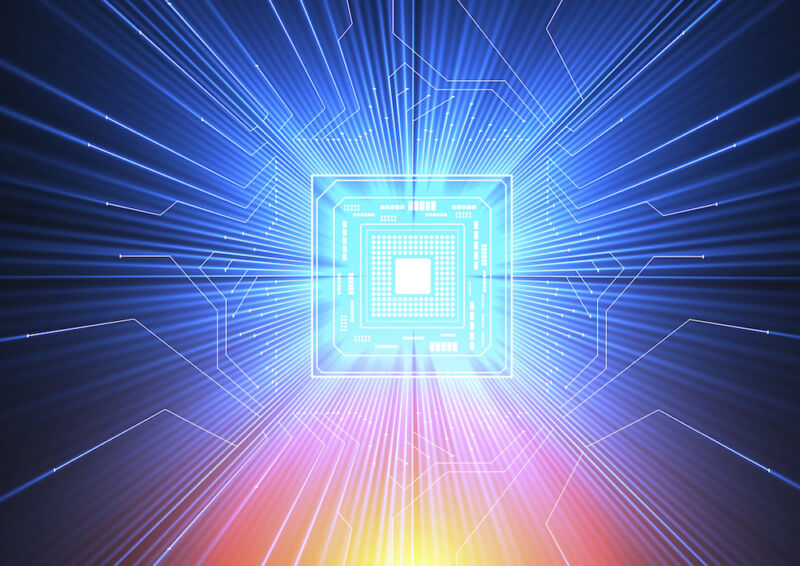The cryptopocalypse is nigh! NIST rolls out new encryption standards to prepare
[ad_1]

Getty Images
In the not-way too-distant future—as small as a ten years, probably, no person is aware of exactly how long—the cryptography guarding your bank transactions, chat messages, and professional medical data from prying eyes is going to crack spectacularly with the introduction of quantum computing. On Tuesday, a US authorities agency named 4 alternative encryption schemes to head off this cryptopocalypse.
Some of the most broadly made use of general public-important encryption systems—including those using the RSA, Diffie-Hellman, and elliptic curve Diffie-Hellman algorithms—rely on arithmetic to secure delicate details. These mathematical difficulties incorporate (1) factoring a key’s significant composite number (generally denoted as N) to derive its two elements (typically denoted as P and Q) and (2) computing the discrete logarithm that keys are based on.
The stability of these cryptosystems relies upon totally on classical computers’ issue in solving these complications. While it is really uncomplicated to crank out keys that can encrypt and decrypt details at will, it can be impossible from a realistic standpoint for an adversary to work out the numbers that make them get the job done.
In 2019, a crew of researchers factored a 795-little bit RSA crucial, creating it the greatest key size ever to be solved. The same group also computed a discrete logarithm of a various vital of the similar size.
The scientists believed that the sum of the computation time for equally of the new records was about 4,000 main-decades making use of Intel Xeon Gold 6130 CPUs (working at 2.1GHz). Like previous information, these have been completed making use of a intricate algorithm known as the Variety Area Sieve, which can be used to carry out each integer factoring and finite area discrete logarithms.
Quantum computing is nonetheless in the experimental section, but the success have currently created it apparent it can resolve the exact mathematical difficulties instantaneously. Increasing the size of the keys will never support, either, due to the fact Shor’s algorithm, a quantum-computing procedure developed in 1994 by the American mathematician Peter Shor, will work orders of magnitude faster in solving integer factorization and discrete logarithmic challenges.
Scientists have identified for many years these algorithms are vulnerable and have been cautioning the environment to get ready for the day when all knowledge that has been encrypted using them can be unscrambled. Main amid the proponents is the US Division of Commerce’s Countrywide Institute of Criteria and Technologies (NIST), which is leading a travel for submit-quantum cryptography (PQC).
On Tuesday, NIST reported it selected four applicant PQC algorithms to replace all those that are expected to be felled by quantum computing. They are: CRYSTALS-Kyber, CRYSTALS-Dilithium, FALCON, and SPHINCS+.
CRYSTALS-Kyber and CRYSTALS-Dilithium are probably to be the two most widely employed replacements. CRYSTALS-Kyber is utilised for creating electronic keys two computers that have hardly ever interacted with just about every other can use to encrypt data. The remaining three, in the meantime, are used for digitally signing encrypted facts to set up who despatched it.
“CRYSTALS-Kyber (critical-establishment) and CRYSTALS-Dilithium (digital signatures) have been both equally picked for their robust safety and excellent effectiveness, and NIST expects them to get the job done effectively in most programs,” NIST officials wrote. “FALCON will also be standardized by NIST because there may well be use scenarios for which CRYSTALS-Dilithium signatures are too large. SPHINCS+ will also be standardized to stay away from relying only on the stability of lattices for signatures. NIST asks for public comments on a model of SPHINCS+ with a reduced selection of highest signatures.”
The options introduced now are probable to have major impact going forward.
“The NIST possibilities unquestionably issue for the reason that a lot of huge organizations have to comply with the NIST criteria even if their possess chief cryptographers will not agree with their alternatives,” claimed Graham Steel, CEO of Cryptosense, a company that would make cryptography management software program. “But acquiring claimed that, I individually believe that their possibilities are dependent on audio reasoning, specified what we know ideal now about the security of these distinct mathematical complications, and the trade-off with effectiveness.”
Nadia Heninger, an associate professor of laptop or computer science and engineering at University of California, San Diego, agreed.
“The algorithms NIST chooses will be the de facto global conventional, barring any unpredicted last-minute developments,” she wrote in an electronic mail. “A good deal of corporations have been waiting with bated breath for these alternatives to be introduced so they can apply them ASAP.”
Whilst no just one understands just when quantum computers will be offered, there is appreciable urgency in relocating to PQC as soon as probable. Several researchers say it truly is likely that criminals and nation-state spies are recording massive quantities of encrypted communications and stockpiling them for the working day they can be decrypted.
[ad_2]
Resource connection






